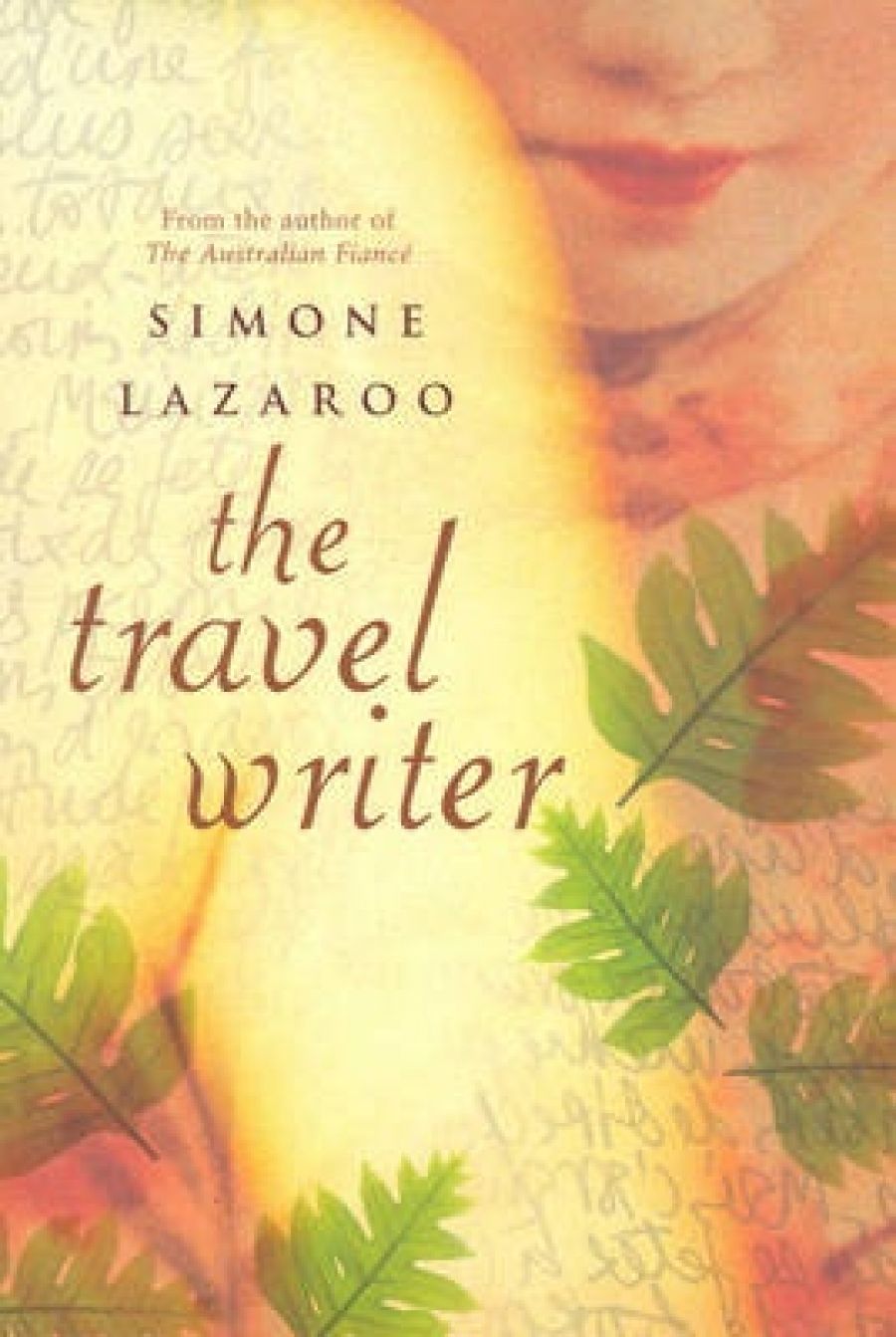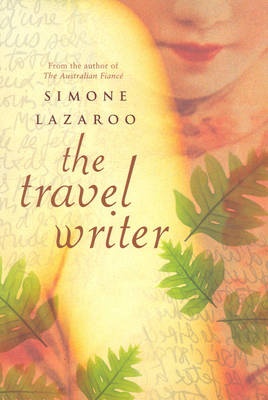
- Free Article: No
- Contents Category: Fiction
- Custom Article Title: Sleeping dictionary
- Review Article: Yes
- Article Title: Sleeping dictionary
- Online Only: No
- Custom Highlight Text:
Anyone who has read Simone Lazaroo’s novel The Australian Fiancé (2000) will find many echoes in her latest work, The Travel Writer. That earlier book follows a young Eurasian woman, who had been kept by the Japanese as a comfort woman during the war, while she is being courted by a wealthy Australian. He lures her back to Broome with the promise of marriage, but the relationship collapses under the twin burdens of Australian racism and her traumatic past, which comes back to haunt her in devastating ways.
- Book 1 Title: The Travel Writer
- Book 1 Biblio: Picador, $32.95 pb, 310 pp, 0330422561
- Book 1 Cover Small (400 x 600):

- Book 1 Cover (800 x 1200):

The more we learn about Ghislaine’s past, the more aware we become of the parallels with Isabelle’s present. Ghislaine traded her sexuality for the chance of a better life, but in return she was exploited by two unpleasant white men who objectified her and were unfaithful to her. Isabelle’s liaison with the writing tutor is tracing a similar pattern, as Ghislaine points out when told about him. ‘Too many precedents,’ she tells her daughter. And then: ‘The unwritten history of the British in Malaya. Middle-aged white man seeks young … half-caste woman to translate the exotic for him … Sleeping dictionaries, the expatriates called us.’
The potency of the mother–daughter bond and how it manifests itself across the generations is just one of the themes encompassed by this multilayered novel. Others include the doubly colonised position of non-Western women, constrained as they are by race and gender; the ineffability of inherited losses and regrets; and the fractured, unstable nature of post-colonial identities, leaving our female protagonists with an insecure sense of self. As Ghislaine tells her daughter: ‘How can we see our suitors properly if we can’t see ourselves?’
One of the most successfully explored ideas is the way writing can be deployed both to seduce and control, as enacted through the figures of the travel writer and the writing tutor, which in turn highlights the nexus between power and knowledge. The travel writer publishes arrogant, racist articles that survey and classify ‘exotic’ peoples and cultures, and that remind us of the intimate links between the rise of travel and imperialism. Ultimately, writing is used as a form of empowerment: late in her life, Ghislaine earns a living and a reputation by writing obituaries for a newspaper; and we come to realise that ‘The True Body’ sections of this novel are Isabelle’s attempts to reclaim and memorialise her mother’s life by writing it.
This concatenation of ideas is expressed in elegant, plangent prose; Lazaroo writes lush, lyrical passages that are suffused with imagery and replete with metaphors. When a ‘native mistress’ learns that her expatriate lover has left and taken their child back to England, we are told:
It seemed to Ghislaine that grief had blown open this sleeping dictionary, and that everyone felt entitled to read her. There she was, falling open at the words her lover had marked in her as he undid her page by page, exposing her spine, leaving only this bad translation of her flapping in the wind.
Lazaroo’s writing is also aphoristic and endlessly quotable. On her deathbed, Isabelle describes her mother in the following way: ‘Her skin is creased like paper, all her life written on it.’
Yet despite this novel’s theoretical richness and beautiful language, it is full of longueurs and its characters lack depth. Clearly, novels differ in their use of and engagement with voice, story, characterisation, plot, pace and so on, but good novels tend to be accomplished in all aspects. In The Travel Writer, the story is smothered by the multitude of themes, and the characters become mere ciphers to their explication. In discussing how fiction works, Flannery O’Connor once wrote: ‘Fiction operates through the senses … No reader who doesn’t actually experience, who isn’t made to feel, the story is going to believe anything the fiction writer merely tells him … The meaning of fiction is not abstract meaning but experienced meaning.’ And this is where this novel failed: it didn’t move me; I wasn’t made to care.
The Travel Writer contains interesting meditations on imperialism and identity, but at the expense of a compelling story and rounded characters. It would be a perfect set text for a course on gender and post-colonial theory, but it is not a satisfying work of fiction.


Comments powered by CComment